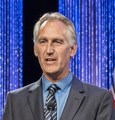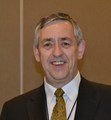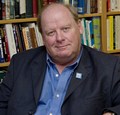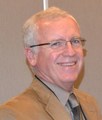At the 2015 Feast AND Famine Workshop: “Market gardens not the answer to B.C.’s food challenges,” said Ted van der Gulik, Partnership for Water Sustainability in BC

Protection of farmland — including from port-related development in South Delta — is far more important, along with finding ways to better use water and to bring more irrigation to lands not suitable for growing food, said Ted van der Gulik. “I support market gardens. They’re good. It’s great to grow food in parking lots, having people grow their own food. Just don’t call them food security,” he said.









